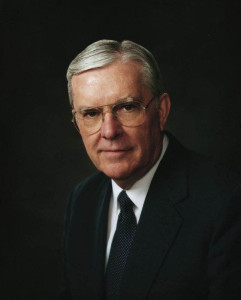Usually when we think of missionary work we think of sharing the gospel with non-members, but reminding less active members of important covenants and blessings is also a part of missionary work. Great sensitivity and care should be taken, all in the spirit of Christ-like love and without judgment. Elder M. Russell Ballard encouraged “You and I must do everything we can to see that every member of the Church is completely fellowshipped and enjoying all the blessings the gospel has to offer.” (Ensign, Sept. 2008, pg.8)
 I was talking with some friends online recently about King Saul, Soloman, and David from the Old Testament. Isn’t it great to be able to talk about gospel topics with friends all over the globe?!) One of the people in the group shared a personal experience she had and compared it to how some of those Old Testament kings fell from their righteous stature.
I was talking with some friends online recently about King Saul, Soloman, and David from the Old Testament. Isn’t it great to be able to talk about gospel topics with friends all over the globe?!) One of the people in the group shared a personal experience she had and compared it to how some of those Old Testament kings fell from their righteous stature.
With her permission, here are some of her reflections:
“I am sure they were pretty good men up until they started to commit a little sin. Guilt, even in slight degrees, alters a person’s personality. The guilt made them feel bad, but pride made them justify and desensitize themselves to those bad feelings as almost a form of self preservation. While they are desensitizing they are committing more sin, which catapults them into more guilt and the cycle spirals downward until the person at the bottom very little represents the person who once stood on top.”
She continued,
“I had a little bit of a fall while in college. I went through a really ugly period of figuring myself out and I was mid spiral down when an old high school friend and I got together for lunch. As we were parting ways she frowned at me and said, ‘Babe . . . you’ve lost your hi-pro glow.’ I laughed at her and told her she was a nut-case, but she grabbed my arm and said, ‘I mean it. You’re different. You’re a cold shadow of the person you used to be. Whatever’s going on in your life . . . you better put it to an end.’ I laughed and pretended her words didn’t cut me to the core, but I bawled the whole way home and for hours into the night. She was right. I was different because I’d begun the spiral. It was like being in one of those water slide tubes where you almost have no way of stopping yourself. I put my hands out to stop the fall . . . and sometimes I still feel the burn marks on my hands.”
As we talked about some of these Old Testament leaders who fell from grace my friend concluded
“I think these men had the same problem. They were in their own spirals, only they had a little more pride than a starving college student had to deal with. These men were kings. They were favored of God. Imagine the amount of pride they had. Imagine how far they would have to go to justify themselves in order to make themselves feel okay inside. Imagine the burn marks they’d get on their hands when they tried to stop their own fall. When I start on my spiral downward (since on a daily basis I am doing stupid stuff) I think of my friend grabbing my arm and telling me I’d lost my hi-pro glow. I’m quick to put my hands out so my falls don’t go down so far that I can’t stop. Those kings could have used a good friend to slap them upside the head.”
Elder Merlin R. Lybbert of the Seventy gave an excellent talk in the May 1990 Ensign (page 81) where he shared the parable of the Good Samaritan and compared the passersby to members of the church and how we need to care for other members of the Church who may have been hurt on their journey. Said he,
“Most of us are acquainted with someone who is spiritually ill or wounded, lying on the roadside half dead, and who desperately needs the assistance of a good LDS brother or sister – that is, a Latter-day Samaritan. Our prophet has repeatedly reminded us that rescuing the less active is one of our greatest challenges of service.”


